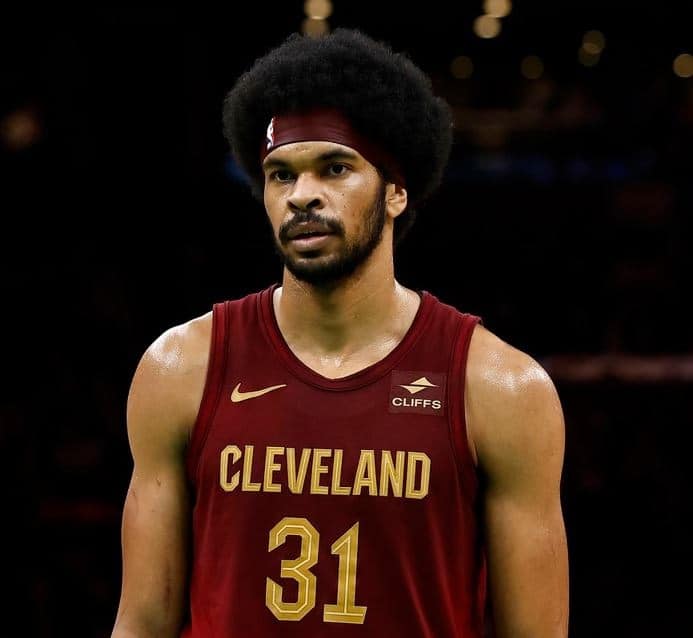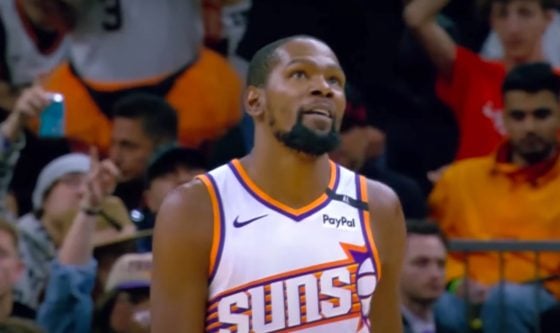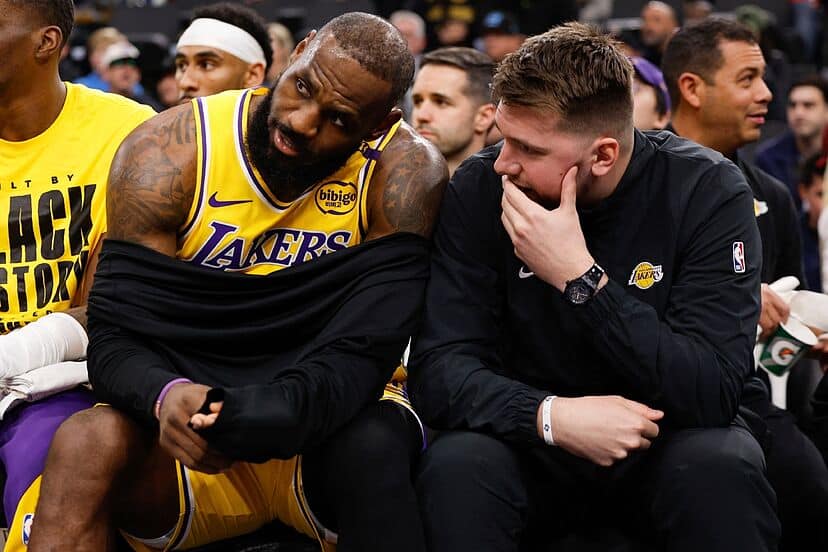I’ve got some good news and some bad news. Which do you want to hear first?
I’m assuming you went with ‘bad news.’
The bad news is that the Celtics beat themselves on Friday night.
The C’s had been playing with fire all evening long. They committed a ton of unforced errors and got away with them for the first 42 minutes of the game. Even though the turnover stats are what stands out, the C’s also displayed stretches of appalling shot selection, so much so that while the focus will naturally be on the terrible shots taken as the game drew to a close, the C’s did not really get away from a winning game plan once the game got tight: they had been playing fast and loose with a proven formula for the majority of the game.
I don’t know to what extent the pressure of the moment got to them — we are talking about a team with zero Finals experience here — and to what extent they were lured into poor plays by a raucous Garden crowd. There were several moments where the C’s were in a position to stretch out their lead, only to deviate from proven sets and shots, seemingly in an effort to deliver a body blow to the Warriors.
The problem with that, of course, is that no amount of crowd noise is going to turn a bad shot into a good one, and the Warriors have been here far too many times to be cowed by a lot of noise.
So, what’s the good news?
The good news is that, during their stretches of sanity on Friday, Boston demonstrated clearly that the Warriors cannot beat them.
Boston is simply too deep, too physical and too big for the Warriors. And when they have their wits about them, they’re too smart for the Warriors as well.
Photo by Winslow Townson/Getty Images
While Steph Curry put up gaudy stats in Game 4, the C’s defense on the whole was not awful. ESPN’s announcers continually harp on the way Boston’s bigs defend Curry, but there seems to be a deeper strategy at work here. Anyone can see what the C’s bigs allow Curry to do, but it takes a bit of a closer look to discern what Boston’s bigs keep Curry from doing.
Udoka seems to be content to let Curry get his shots in order to keep the rest of the Warriors’ offense disengaged and static. Drop coverage by Williams and Horford has two purposes: it cuts off Curry’s ability to drive and it cuts off his ability to pass.
It may seem counterproductive to prevent Curry from passing to another player who is nowhere near as good a shooter, but by forcing Curry to take shots, they make him a one-dimensional player.
Keeping Curry isolated with the ball also keeps him from moving without the ball, which can cause rotation issues or the outright collapse of a good defensive set. Klay Thompson has gotten better at off-ball movement, but the rest of Golden State’s shooters seem to be of the catch-and-shoot variety, which means they have limited value when the primary ball-handler is not able to move freely.
Closing off Curry’s driving lanes has the same benefit as keeping Curry from moving without the ball. When Curry moves, the defense has to react, and while Boston’s defense has been, for the most part, very good at rotating coverage when Curry moves, movement tends to favor the offense, while static sets favor the defense.
Drop coverage also keeps the C’s bigs out of foul trouble, and this works in two ways as well: Curry is adept at drawing fouls on drives, and he is adept at drawing fouls on three point attempts. The C’s bigs have largely stayed out of foul trouble because they have not committed fouls on the perimeter and they have generally avoided fouling Curry on drives. Now, granted, Horford is a savvy vet who has a better chance of avoiding foul calls on contested drives and threes, but Curry is going to get the benefit of the doubt most of the time even against Al. For Williams, who is still prone to aggressive reactions to pump fakes, the risk of accumulating fouls by defending Curry too enthusiastically is even greater.
When the C’s guards stay with Curry they are putting him to work. Both Derrick White and Marcus Smart are brilliant defenders who have learned how to stay just this side of the law, and that has paid off as Curry — last night notwithstanding — has lost his legs somewhat by the end of the game. In fact, Kerr sat Curry for part of the 3rd quarter, something which he did not do in the first three games, and perhaps not coincidentally, the Warriors’ margin for the third quarter was significantly lower than it was in the first three games. In order to ‘win’ the fourth, Kerr had to sit Curry for a chunk of the third.
And that, ultimately, is what favors the Celtics. The Celtics are forcing the Warriors to change all aspects of their game. Kerr benched Draymond for a significant chunk of the fourth quarter, and while the talking heads made a big deal out of that, it was a transparently easy call to make. Draymond has been one of the Celtics’ best assets when he’s been on the court. He’s a player who has grown accustomed to being physically dominant at both ends of the court, and the C’s are just, collectively, too big and too strong for him to push around.
The Warriors are no longer a young team. Nor are they a particularly deep team. They have never been a big team, and the Celtics have all those things going for them.
The flip side of that, though, is that the Warriors are a veteran team on this stage.
The C’s hit the court wound tighter than an eight day clock, and then when the game got close in the final minutes, they lost their cool.
The Herald’s Steve Bulpett has referenced Rudyard Kipling’s “If” on more than one occasion, and while Kipling definitely wrote some poems that have not stood the test of time, “If” is not one of them. For the Celtics, the relevant bits are below:
If you can keep your head when all about you
Are losing theirs and blaming it on you
…
If you can fill the unforgiving minute
With sixty seconds’ worth of distance run,
Yours is the Earth and everything that’s in it,
And—which is more—you’ll be a Man, my son!
The thing about the end of Friday night’s game is that the Celtics had everything they needed to win that game right there on the court with them. We know they have the ability to close out games, even games against the Warriors.
The only problem is that while we all knew that they could win by playing the game their way, they forgot.
Let’s hope that it was just a temporary hiccup on the road to Banner 18 — or a calculated strategy to ensure that the C’s win the series in the Garden.






